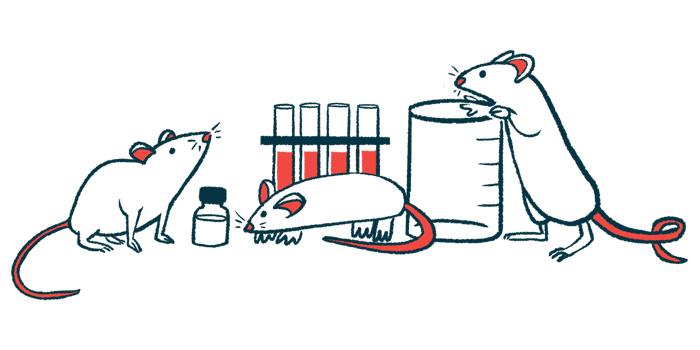2 Medications Shown to Reduce Fibrosis, Inflammation in Mouse Study
Written by |

Two medications — one for arthritis and the other for diabetes — were able to lessen scarring and inflammation in a mouse model of systemic scleroderma (SSc), according to a new study.
These results support further research into the medications, tofacitinib and metformin, and others that target the JAK/STAT pathway for SSc. JAK/STAT is a molecular signaling pathway driver of inflammation and fibrosis (scarring) in diseases like SSc.
The study, “Tofacitinib and metformin reduce the dermal thickness and fibrosis in mouse model of systemic sclerosis,” was published in the journal Scientific Reports.
Tofacitinib, sold under the brand name Xeljanz among others, is an approved therapy for certain inflammatory diseases like rheumatoid arthritis. Metformin, sold under brand names that include Fortamet and Glucophage, is used to manage type 2 diabetes.
In the study, a team of scientists in Turkey tested these two medications — thought to affect the activity of the JAK/STAT pathway — in a mouse model of SSc.
In the model, female mice were injected with a chemical called bleomycin to induce SSc-like inflammation and fibrosis. This resulted in thickened skin, as well as increased levels of fibrotic cells (myofibroblasts) and inflammatory immune cells (lymphocytes).
Treatment with tofacitinib reduced skin thickening by 35%, and myofibroblast levels were reduced significantly, by 71%. Similarly, metformin treatment reduced skin thickening by 32% and myofibroblast levels by 67%. Both treatments also lowered lymphocyte counts, but the reduction was not statistically significant.
Further analyses indicated that treatment with either medication significantly reduced levels of interleukin-17 (IL-17) and transforming growth factor beta (TGF-beta), which are pro-inflammatory and pro-fibrotic signaling molecules. The medications also lowered levels of collagen, the structural protein that is the principal component of scar tissue.
“In our experimental study, we found a reduction in skin thickness and fibrosis with TOFA [tofacitinib] treatment,” the researchers concluded. “In addition, skin IL-17 and [TGF-beta] expression, collagen level, and myofibroblast number were decreased in the TOFA group. These results support that TOFA has both anti-inflammatory and anti-fibrotic effects.”
They added, “skin IL-17 and [TGF-beta] expression and collagen level decreased and skin fibrosis was suppressed with [metformin] treatment.”
The team noted that a Phase 1/2 clinical trial (NCT03274076) that compared tofacitinib against a placebo in patients with early diffuse cutaneous SSc failed to show evidence that the treatment was easing symptoms. The scientists said the trial’s low number of participants (15) may have affected the results.
Nonetheless, they said that these results broadly support further exploration of therapies targeting JAK/STAT pathway for SSc.






